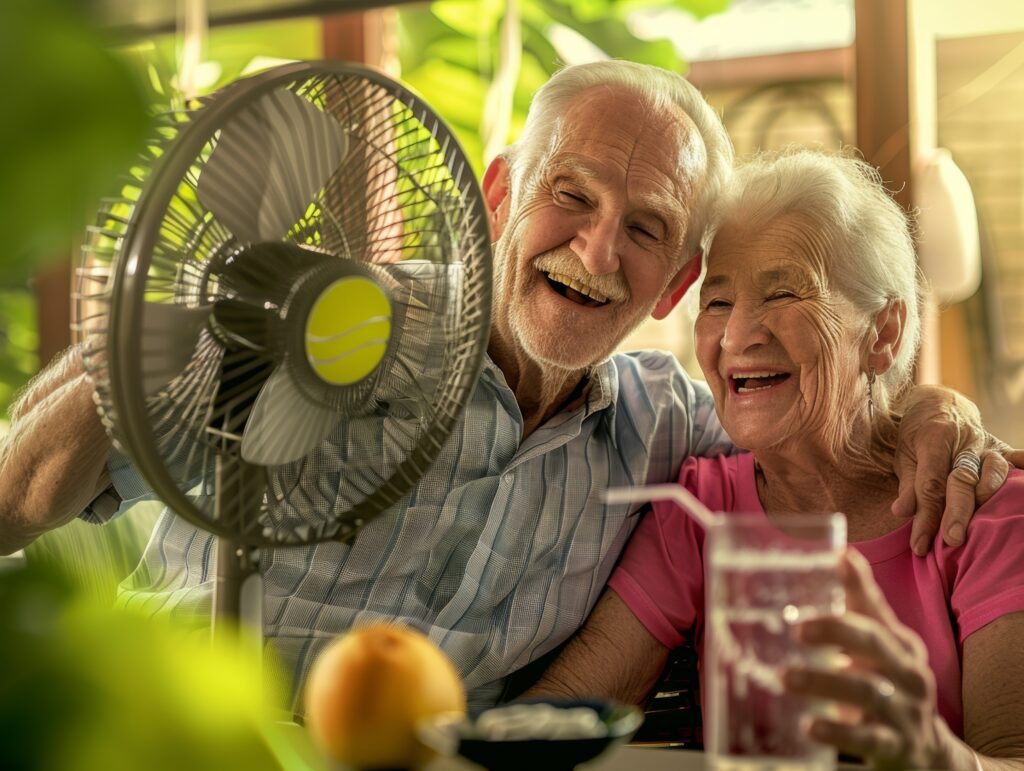Aging is a normal part of life. No fountain of youth prevents it. At the same time, few people want to age more quickly than nature intends. A new study suggests that “accelerated aging” may be a byproduct of living in extreme heat.
Medical researchers have established that prolonged exposure to extreme heat can harm bodily systems. Hot temperatures can cause heat stroke, damage kidneys and other organs, and stress the cardiovascular system. Confusion, delirium, and seizures can be triggered by overheating. Lesser consequences include heat rashes and swelling of the hands and feet.
While people of all ages are vulnerable to extreme heat, our bodies have more difficulty regulating our internal temperature as we age. Older adults and people with compromised immune systems are among those who have a heightened risk of developing a heat-related illness when temperatures soar.
Accelerated Aging
The new study links extreme heat not just to heat-related health conditions, but also to shortened lifespans. Even if older adults avoid heat stroke and other heat-related illnesses, extreme heat may hasten the deterioration of biological systems and accelerate biological aging.
The study suggests that extreme heat can cause epigenetic changes that affect the body at a cellular level. Epigenetic aging — the degree of aging associated with chemical modification of an individual’s DNA — is measured by epigenetic clocks. A discrepancy between epigenetic age and chronological age may indicate that the body’s tissues and cells are aging more rapidly than the passage of time would usually dictate.
The study defined “extreme heat” as a temperature of 90 degrees or above. The researchers found that older adults who lived in neighborhoods prone to extreme heat experienced more rapid epigenetic aging than comparable individuals who lived in cooler climates. The researchers estimated that an older adult living in a place that reached 90 degrees or above for at least 140 days a year could age up to 14 months faster than someone living in a place that reached that temperature only 10 days a year.
Older adults who live in colder climates have long tended to migrate to states with warmer climates when they retire. Unfortunately, global warming is making warm climates hotter, placing older adults who retire in those states at greater risk of accelerated aging.
The study’s authors candidly acknowledge its limitations. Because the study focused on large populations rather than individuals, it did not measure the precise heat exposure that each study participant endured. Some study participants may have spent more time outdoors than others. Conversely, some people who live in hot places may mitigate the impact of heat by spending most of their time in an airconditioned environment.
The study nevertheless suggests that populations of older adults who live in hot climates experience accelerated aging more than populations of older adults living in cooler climates. Excessive heat is the most likely explanation for that difference.
What Can Older Adults Do to Stay Cool?
Older residents of states that regularly subject them to extreme heat might want to take the study as a warning. The National Institute on Aging recommends that older adults spend as much time in airconditioned buildings as possible when temperatures become extreme. Older adults who do not live in an airconditioned residence might want to spend the warmest hours of their days in a public library, a senior center, a mall, or a friend’s airconditioned home.
While exercise is essential to good health, long walks in hot weather can be deadly. Even waiting for a bus in hot weather can be dangerous. Older adults should minimize their outdoor time in hot weather and, if they must be outdoors, should try to stay in the shade.
Older adults can also keep cool by preparing meals that don’t require them to use an oven. Closing blinds during the day can keep homes cool, as can opening windows at night. Wearing loose-fitting, light-colored, lightweight clothing, particularly when it is made from cotton and other natural fibers, will help the body stay cool.
Drinking fluids throughout the day minimizes the risk of dehydration associated with hot temperatures. Water and juices are the healthiest drinks. Alcohol and caffeinated beverages, on the other hand, can cause the body to lose the fluids it needs to stay cool.
